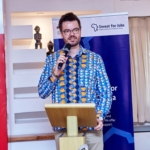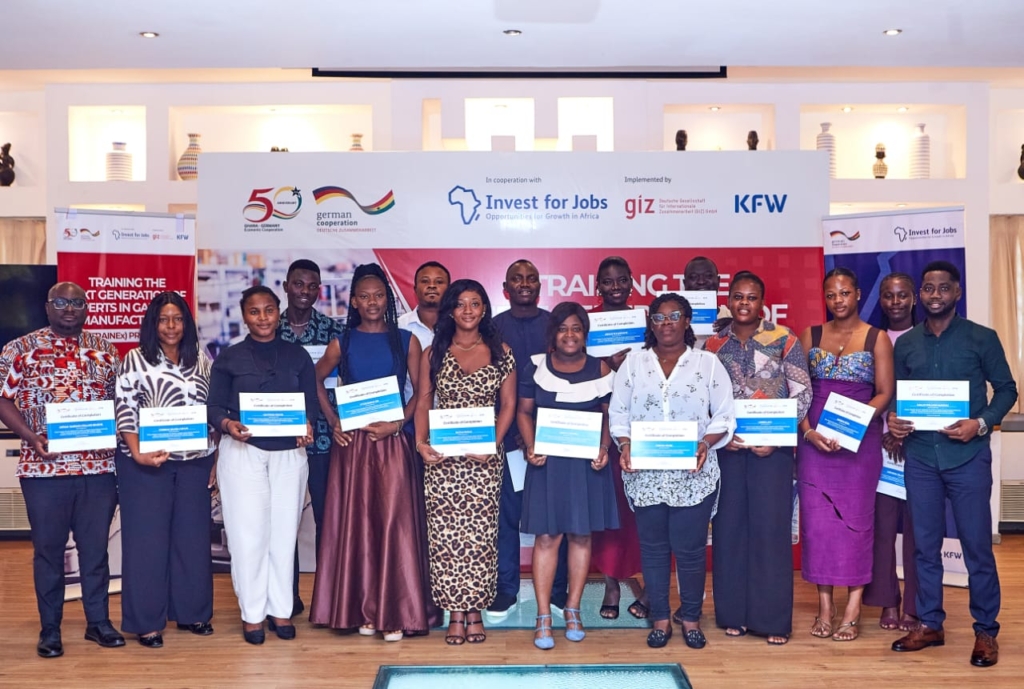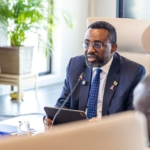
The German Development Cooperation has marked the successful completion of the “Training the Next Generation of Experts in Garment Manufacturing” (TRAINEx) project.
The project was supported by the Special Initiative “Decent Work for a Just Transition” which operates under the brand Invest for Jobs. It is funded by the German Federal Ministry for Economic Cooperation and Development (BMZ) and implemented by the Deutsche Gesellschaft für Internationale Zusammenarbeit (GIZ) GmbH, and Brandix Corporate Campus.
Across Africa, the textiles and garments sector continues to face a significant production gap, with value-added output projected at only US$1.84 billion in 2025. In Ghana, domestic demand stands at 120 million yards, valued at US$400 million, yet manufacturers operate at just 30% capacity.
These challenges persist due to limited technical expertise and low investment levels. TRAINEx was designed to help address this gap by developing a pool of skilled local professionals who can support firms to enhance productivity and competitiveness.
Participants of the project received specialized training in production management and quality control, merchandising and costing, industrial engineering, and social compliance. Training was delivered by industry experts using both practical and theoretical approaches through in-factory coaching and hands-on internships.
The project, in addition, and through the collaboration with Brandix Corporate Campus, (the educational and training arm of the Brandix Group), took participants on a study tour in Sri Lanka. The Brandix Group is one of Sri Lanka’s leading apparel manufacturers. This international exposure enabled the trainees to link theoretical knowledge with real-world manufacturing practices and observe global best practices in the garment industry.

The completion of the training marks a significant step towards developing a sustainable talent pipeline for Ghana’s apparel industry, as the trainees are now being employed by local garment factories. This will contribute to reducing the reliance on expatriate expertise and empowering a new generation of local professionals to drive the textile and garment sector’s transformation. The programme is also expected to generate further engagements towards a greater alignment of the existing textile and fashion curricula with the pressing technical needs of Ghana’s fast-growing garment manufacturing industry.
Simon Hochstein, Component Head for Invest for Jobs at GIZ Ghana, noted that “the training enables participants to enhance their work efficiency while also equipping them to train others in the workplace.
This will help improve productivity, strengthen the textile industry, and create more jobs. Such efforts make an important contribution to a Just Transition, one in which our country becomes more inclusive and creates greater opportunities for women and youth.”



